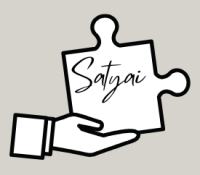🚀 The GenAI Professional Career Path: Your Free Learning Roadmap
Generative AI (GenAI) is no longer a niche; it’s the core of the next technology wave. As a GenAI professional, you bridge the gap between complex Large Language Models (LLMs) and real-world business applications. This roadmap provides a clear path and focuses exclusively on free, high-quality resources to propel your career.
I. Foundational Pillars (Months 1-3)
Before tackling models, you need a strong technical base.
| Skill | Why it’s Critical | Free Learning Resources |
| Python Proficiency | The lingua franca of AI/ML. Needed for model development, data processing, and application deployment. | Kaggle Courses: Python, Pandas, and Data Visualization. W3Schools: Python Tutorial. |
| ML & Deep Learning Basics | Understand the core mechanics of how neural networks learn, which is the engine of all LLMs. | DeepLearning.AI: Generative AI for Everyone (No coding required, excellent for context). Coursera: Machine Learning Specialization (Financial Aid/Audit for free access). |
| Linear Algebra & Calculus | Essential for grasping the mathematics behind vector embeddings, backpropagation, and model optimization. | Khan Academy: Linear Algebra and Multivariable Calculus courses. |
| Data Handling | GenAI is data-intensive. You must clean, preprocess, and manage massive datasets. | Kaggle: Datasets and starter notebooks for hands-on practice. OpenAI Cookbook: Practical examples for data tokenization. |
II. Generative AI Specialization (Months 4-6)
This phase shifts your focus directly to the core GenAI technologies.
A. Large Language Models (LLMs) & Transformers
- Concepts to Master: Transformer Architecture (Attention Mechanism), Tokenization, Transfer Learning, LLM Pre-training, and Fine-Tuning (LoRA/PEFT).
- Free Courses:
- Hugging Face: NLP Course (Highly practical, focusing on the Transformer library).
- DeepLearning.AI: ChatGPT Prompt Engineering for Developers (Short, focused, and co-created with OpenAI).
- Google Cloud: Introduction to Generative AI Learning Path (Covers models and tools from Google).
B. Core Generative Model Architectures
While LLMs dominate, foundational knowledge of image and other data-type models is important.
- Concepts to Master: Generative Adversarial Networks (GANs), Variational Autoencoders (VAEs), Diffusion Models (for image/video).
- Free Resources: PyTorch/TensorFlow Tutorials on implementing VAEs and GANs from scratch. Papers With Code to review the latest research implementations.
III. Application & Deployment Mastery (Months 7+)
This is where you move from research to a high-value professional role.
| Key Role | Skills Focus | High-Impact Project Idea |
| Prompt Engineer | Prompt Patterns, Optimization, Evaluation. Turning vague business requests into precise model inputs. | Create a Prompt Library on GitHub for common tasks (e.g., summarization, code generation) and a test suite to compare model outputs. |
| GenAI Developer/Engineer | LLM APIs, RAG, MLOps/LLMOps, LangChain/LlamaIndex. Integrating LLMs into production systems. | Build a Retrieval-Augmented Generation (RAG) system that answers questions based only on a specific set of documents (e.g., your company’s internal knowledge base). |
| AI Trainer/Ethicist | Model Alignment (RLHF), Bias Mitigation, Safety Filtering, Responsible AI. Ensuring ethical and safe model usage. | Research and present a case study on a GenAI bias failure, proposing technical and policy solutions. |
Free Development Tools & Environments
- Cloud Access: Use Google Colab (Free tier) for running and training models without local GPU requirements.
- Ecosystem: Become proficient with the Hugging Face Hub (Models, Datasets, and Spaces for deployment).
- Frameworks: Master LangChain and LlamaIndex for connecting LLMs to external data sources and complex application pipelines.
🌟 Continuous Learning & Community
GenAI is the fastest-moving field in tech. You must commit to continuous learning.
- Community: Join Kaggle (competitions and tutorials), Hugging Face Discussions, and relevant subreddits/LinkedIn groups.
- Research: Follow research on arXiv and track major releases from OpenAI, Google, and Meta.
- Hands-On: Your GitHub Portfolio is your ultimate resume. Every course you take should lead to a project in your portfolio. Focus on deployment—a simple web app using your RAG system is more impactful than a standalone Jupyter notebook.
This roadmap provides the structure. Consistency and hands-on project work will turn these free resources into a thriving career.
